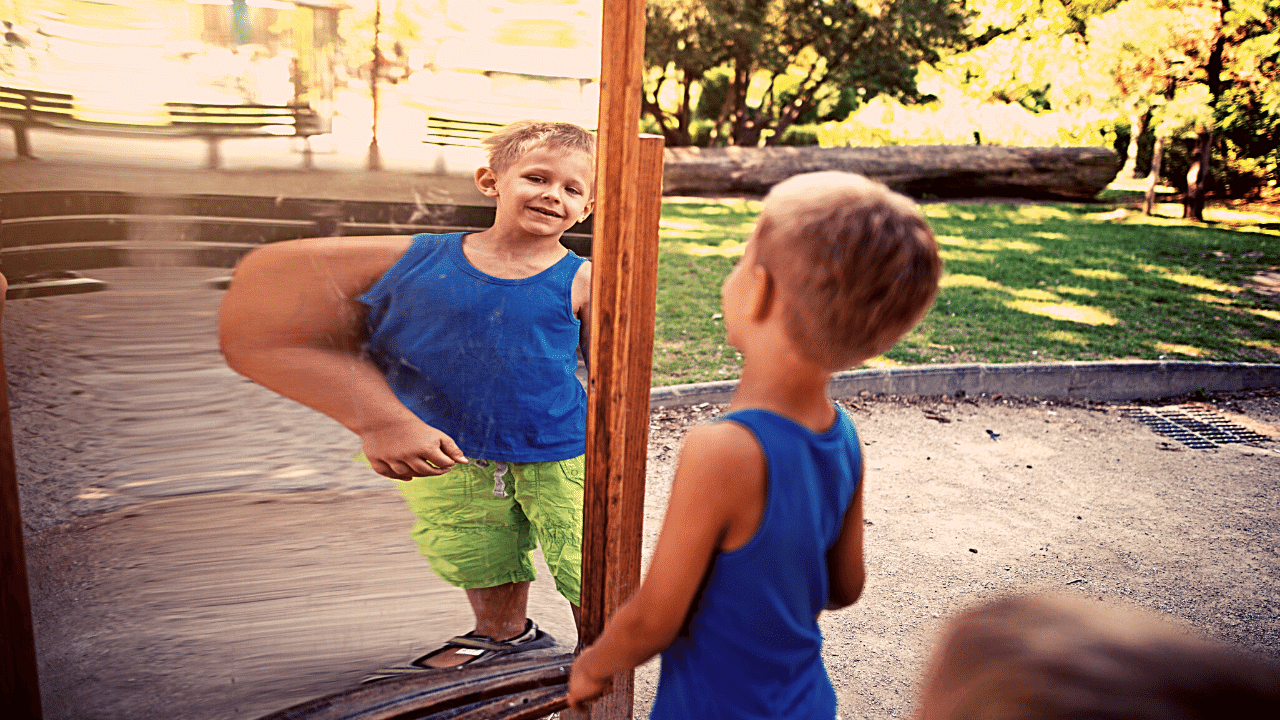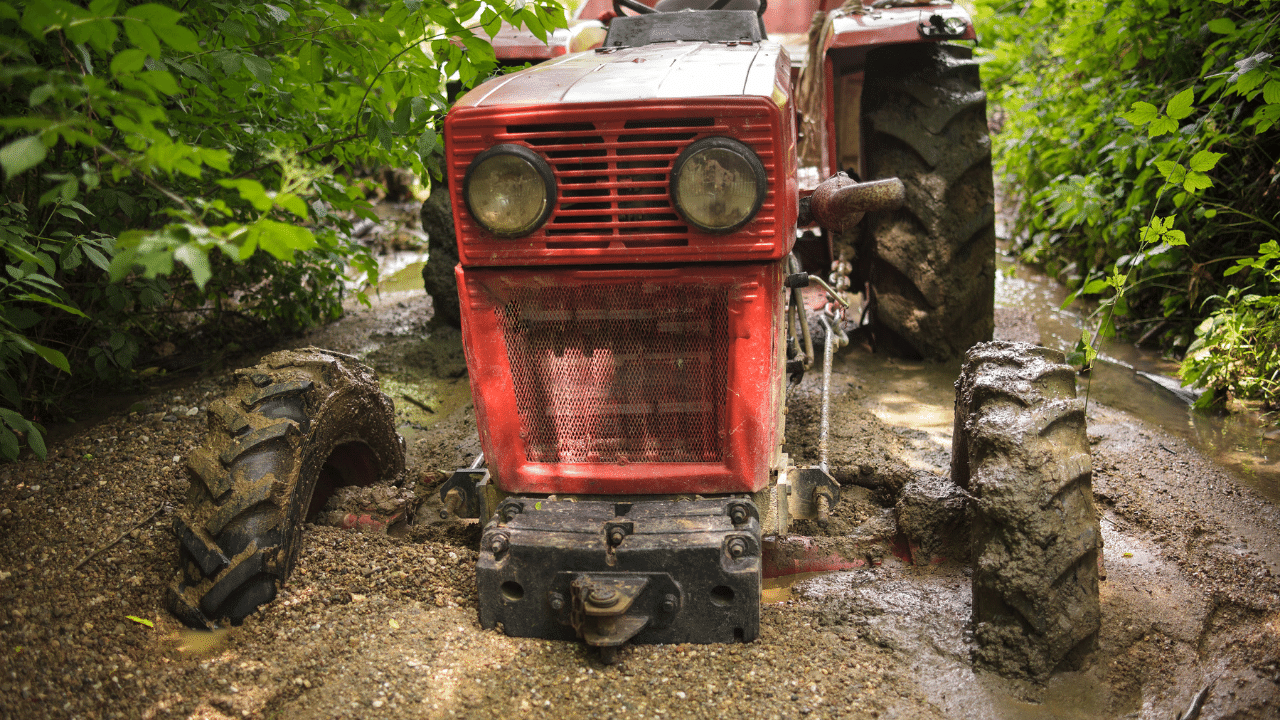The Mirror that Lies

Did you look at yourself in the mirror this morning? Do you like the person who was looking back at you? Or perhaps, like so many of us, you noticed your flaws rather than your assets.
Some years ago, I visited a funfair which had distortion mirrors as part of the attraction. You know the ones that change your proportions to make you look ridiculous?
Well, if laughter is the best medicine, we certainly got a good dose that day! Elongated heads, enormous stomachs and bulging biceps to name a few altered body parts. Personally, I liked the one that made me look like a top-notch athlete!
I was thinking about those mirrors this week during a conversation with a client. Ben (not his real name) was describing what he thought of himself. He used the words: “worthless, a failure and not good enough.”
I was surprised by what he said since I know that he is a young man with many great qualities and talents. It sounded to me like a very distorted picture of reality.
But just in case I was be...
Do you feel stuck?

Who doesn’t love a good movie? My family and I recently watched “Knives Out”, a good ol’ fashioned “who dunnit” that keeps you guessing to the end.
“Knives Out” has all the elements of a great story. Drama. Mystery. Intrigue. Struggle. Villains. Twists. Humour. Surprise and of course, a fitting ending.
You’re kept on your toes throughout as Detective Blanc works his way through all the possible suspects to find out who murdered Harlan Thrombey, the wealthy novelist. All along there are little titbits to dupe you into thinking you’ve figured it out but then … wham, something else crops up and it’s back to the drawing board.
In most great stories, there is a struggle of some sort. The main character faces what looks like impossible odds. The prince must first slay the dragon and beat his way through a thorn forest before he can even think about rescuing the princess from the tower.
This is why we keep watching. We’re drawn to tales of rising above and overcoming. If the...
The secret to thriving even through the tough times

In his book simply titled, “But I survived”, Tadeusz Sobolewicz shares the story of his personal ordeal surviving six Nazi concentration camps, a Gestapo prison and a nine-day death march. It is the harrowing tale of a man who fought bravely to stay alive in hellish conditions for the duration of World War 11.
Thankfully, most of us will never have to face such extreme hardship but Sobolewicz’s story nonetheless has relevance for our lives today. We may not be trying to escape death but difficulties come in all shapes and sizes. And this tragic tale of woe is also one of hope. Hope that whispers, “you can too”.
Of course, we know that for every Sobolewicz, there are many more who give up. Plenty who try and fail and fail to rise again.
So, what enables one person to overcome whilst another crumples in defeat?
I believe the answer lies in resilience. Resilience is the antidote to succumbing, complaining, blaming and numbing. Resilience is the ability to endure with hope. It is...
Discover how the 3 C's affect your ability to handle challenges

Some say that adults make about 35 000 choices every day. I don’t know which patient soul took the time to count, but the point is, we make a lot of daily decisions.
And because we face a constant barrage of options, our brains look for ways to make things simpler. It might take 10 minutes to decide what to eat in a restaurant but if every decision took that long, it would be hard to get anything done!
So, our very efficient brains get really good at finding ways to manage excessive information. We develop habits which remove a lot of conscious thought. If you always exercise first thing in the morning, it becomes something you “just do”. You don’t act based on how you feel or if there’s enough time. It’s simply part of a routine that always happens.
Repeating activities until we are skilled is another way of reducing the thinking load. Do you remember when you first learned to drive or play a musical instrument? It took all your concentration. But after years of performing thos...
Top athletes use this strategy to reach their goals

He took his place on the starter block - focus and determination framed his features. With nine gold Olympic medals in the bag, Michael Phelps, was hoping for another. The starter signal sounded and he plunged into the pool, legs and arms working together in powerful unison.
The crowds roared as the swimmers battled it out, jostling for position. In the final 50 metres, Michael took the lead. To the spectators, all looked well. But in the water, a different story was unfolding ...
What no-one knew, was that Michael was swimming blindly. His goggles had started filling with water the moment he entered the pool.
By the last leg of the race, Michael had no idea where his competitors were. He drew deeply on his inner world, imagining the race as he had done countless times before. He finished, not just in first place with yet another gold medal … but with a new world record to his name!
It wasn’t hope or chance that took Michael to the finish line at record speed. He had...
Why looking for the “silver lining” isn't enough to solve challenges

In the story of David and Goliath, we read that David, a young shepherd boy with no experience of battle, ran towards the giant. The other war-hardened soldiers lay cowering in fear. But David ran. No armour, no sword, no training, no experience. And, no-one who believed that he could defeat Goliath.
What gave David this confidence? He had an invincible belief that he would win. His faith and past experiences with a bear and lion convinced him that he could defeat the odds. And so, he did.
Our beliefs are cultivated over time. They start to form very early on with input from our primary caregivers. That soon expands to include other influencers like teachers, friends and the multitude of everyday experiences which mould our inner world.
By the time we reach adulthood, we hold some very well fortified beliefs about ourselves and the world in general. Have you ever tried to convince someone of your views when they believe the opposite? It really doesn’t matter how much evidence you pr...
